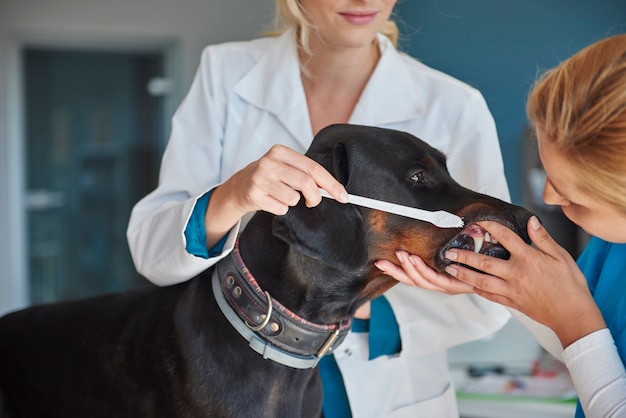Parasite Prevention Tips for San Francisco Pets


Parasite Prevention Tips for San Francisco Pets
Keeping your cat or dog safe from parasites is a year-round responsibility for every pet owner, especially in a vibrant city like San Francisco. Urban environments present unique challenges when it comes to parasite prevention for pets, as fleas, ticks, and other unwelcome guests thrive in mild coastal climates and densely populated neighborhoods. At South Park Animal Hospital, located at 598 2nd Street, San Francisco, CA 94107, our veterinary team understands the concerns that come with protecting your furry family members from these persistent threats.
In this blog, we will explore how parasites affect San Francisco pets, what symptoms to watch for, and the most effective strategies for year-round flea and tick control in San Francisco. You'll learn how to recognize the signs of a parasite problem, why these pests are a particular challenge in our local area, and the steps you can take to safeguard your pet's health. We will also discuss when to schedule a wellness examination and how our veterinarians provide comprehensive parasite prevention services tailored to city dwellers. If you have ever searched for a “vet near me” for parasite protection or wondered about the best approach for flea and tick control in San Francisco, this guide is designed for you.
To help you get started with the right protection, we offer parasite prevention services for pets in San Francisco and encourage you to reach out for a consultation tailored to your pet’s lifestyle.
Recognizing the Signs of Parasite Problems in San Francisco Pets
Understanding when your pet may be struggling with a parasite infestation is crucial for early intervention and effective treatment. Parasites such as fleas, ticks, mites, and intestinal worms are common in urban areas due to frequent contact with other pets, wildlife, and public spaces like parks and sidewalks. The symptoms of a parasite problem can be subtle or dramatic, depending on the type and severity of the infestation.
Key symptoms of fleas include persistent scratching, nibbling, or licking, particularly around the base of the tail, belly, or inner thighs. You may notice tiny black specks (known as flea dirt) in your pet’s fur or bedding, as well as signs of red, irritated skin. Ticks are often easier to spot, as they attach themselves to the skin and can look like small, round bumps. Common sites for ticks include the ears, neck, and between the toes. Mites can cause intense itching, hair loss, and thickened or crusty skin, especially around the ears.
Intestinal parasites such as roundworms or tapeworms may cause changes in appetite, weight loss, vomiting, diarrhea, or a bloated abdomen. Some pets will drag their hindquarters or “scoot” across the floor, which can be a sign of irritation or infection. Heartworm disease, while less common in San Francisco than in warmer regions, remains a risk, especially for dogs. Early signs are often subtle and may include coughing, lethargy, or exercise intolerance.
If you observe any of these symptoms, or if your pet has unexplained changes in behavior or appetite, it is important to schedule a wellness examination with a veterinarian near you. Prompt identification ensures your pet receives the right care before complications arise.
Why Parasites Flourish in San Francisco
San Francisco’s climate and urban landscape make it a hotspot for certain parasites. Fleas thrive in mild, damp weather, which is a hallmark of the Bay Area, and ticks are increasingly found in city parks, gardens, and hiking trails. The lush vegetation and moderate temperatures make both fleas and ticks active throughout the year, rather than just seasonally.
Sheltered outdoor spaces, communal dog parks, and even apartment hallways provide ample opportunities for pets to encounter fleas and ticks. In addition, city wildlife such as raccoons, squirrels, and birds can carry parasites, increasing the risk for both indoor and outdoor pets. Unlike rural areas where exposure may be more seasonal, urban pets in San Francisco often require continuous parasite prevention.
Intestinal parasites are also spread easily in city environments due to higher pet density and the presence of contaminated soil or feces in public areas. Even pets that rarely go outside can be exposed to parasites brought in on clothing, shoes, or visiting animals.
Understanding these local risks is key to developing an effective plan for parasite prevention for pets in San Francisco. Our veterinary professionals can help you assess your pet’s risk factors and design a program that fits your lifestyle and routine.
Flea and Tick Control in San Francisco: Treatment and Management
When it comes to flea and tick control in San Francisco, prompt treatment and consistent management are essential to protect your pet’s health and comfort. Treatment approaches involve the use of veterinarian-recommended topical or oral medications that kill adult fleas and ticks while preventing future infestations. These products are much more effective and safer than over-the-counter sprays, powders, or collars, which often fail to address the full lifecycle of the parasites.
If your pet is already infested, our team may recommend a combination of immediate-acting treatments and ongoing preventive medication. Environmental management is also crucial; this includes thorough vacuuming of carpets, washing pet bedding in hot water, and treating the home with pet-safe products to eliminate eggs and larvae.
Pets with severe skin irritation or secondary infections may benefit from additional support, including medicated baths or prescription medications to soothe itching and heal the skin. In some cases, a referral for dermatology services for pets may be needed for complicated or recurring skin issues related to parasites.
For dogs at risk of heartworm disease, our veterinarians provide heartworm testing services and prescribe appropriate monthly preventives. These medications not only protect against heartworm but often include ingredients to control intestinal parasites as well.
No matter your pet’s age, breed, or lifestyle, our veterinary team will work with you to develop a comprehensive flea and tick control plan tailored to your San Francisco home and daily routine.
Preventing Parasite Problems: Home Care and Practical Tips
Prevention is always easier and safer than treating a full-blown infestation. Consistent, year-round parasite prevention for pets in San Francisco is essential for every household, regardless of how often your pet goes outside. Key steps include administering veterinarian-approved preventives as directed; these are available as monthly chewables, spot-on treatments, or collars, depending on your pet’s needs.
Regular grooming and bathing allow you to spot early signs of fleas or ticks and help keep your pet’s coat clean. Washing pet bedding and vacuuming floors frequently can remove eggs and larvae from the environment. When walking your dog in city parks or wooded trails, check for ticks afterwards, paying close attention to the ears, neck, and between the toes.
For cats, especially those with outdoor access, use products labeled as safe for felines, as some dog medications can be toxic to cats. It is important to keep litter boxes clean and to dispose of pet waste promptly to minimize the risk of intestinal parasite transmission.
Ask your veterinarian about the most effective parasite prevention options for your pet’s breed, age, and health status. Customized plans can be created for multi-pet households, pets with allergies, or those with underlying medical conditions.
When to Seek Veterinary Care for Parasite Concerns
While many pet owners are proactive with prevention, there are times when professional veterinary care is necessary. You should schedule an appointment if your pet shows persistent itching, hair loss, skin redness, or visible fleas or ticks that do not resolve with at-home care. Other warning signs include unexplained weight loss, changes in appetite, coughing, or lethargy, which could point to an internal parasite or heartworm infection.
Routine wellness examinations are one of the best ways to catch parasite issues before they become severe. During your visit, our veterinarians will perform a thorough physical exam, recommend screening tests if needed, and ensure your pet’s parasite prevention strategy is up to date.
If you are ever unsure about which products to use, or if your pet experiences a reaction to a preventive medication, contact us right away for guidance. Our team is always here to support you and provide expert advice for parasite prevention for pets in San Francisco and surrounding communities.
Protect Your Pet with Local Parasite Prevention Expertise
Parasite prevention for pets in San Francisco is not just about comfort—it’s about safeguarding your pet’s overall health and happiness in an environment where risks are always present. At South Park Animal Hospital, we are committed to providing the guidance, products, and support you need to keep your pet protected all year long.
If you have been searching for a trusted "vet near me" or want to learn more about flea and tick control in San Francisco, our veterinarians invite you to schedule an appointment and experience personalized care tailored to your neighborhood and lifestyle. Whether your pet needs a routine checkup, a focused parasite prevention consultation, or help with a stubborn infestation, we are here to help.
Schedule your next wellness examination or ask about our parasite prevention services for pets in San Francisco by calling our team at (415) 523-4404 or visiting us at 598 2nd Street, San Francisco, CA 94107. Our veterinary professionals are dedicated to providing the highest quality veterinary services near you—because every pet in San Francisco deserves a happy, healthy life free from parasites.
For more information on parasite prevention and local pet health resources, you can also visit reputable sources such as the American Veterinary Medical Association and Companion Animal Parasite Council.
Medical Disclaimer: The information in this blog is for educational purposes only and is not a substitute for professional veterinary care. Always consult your veterinarian for personalized advice regarding your pet’s health.




















